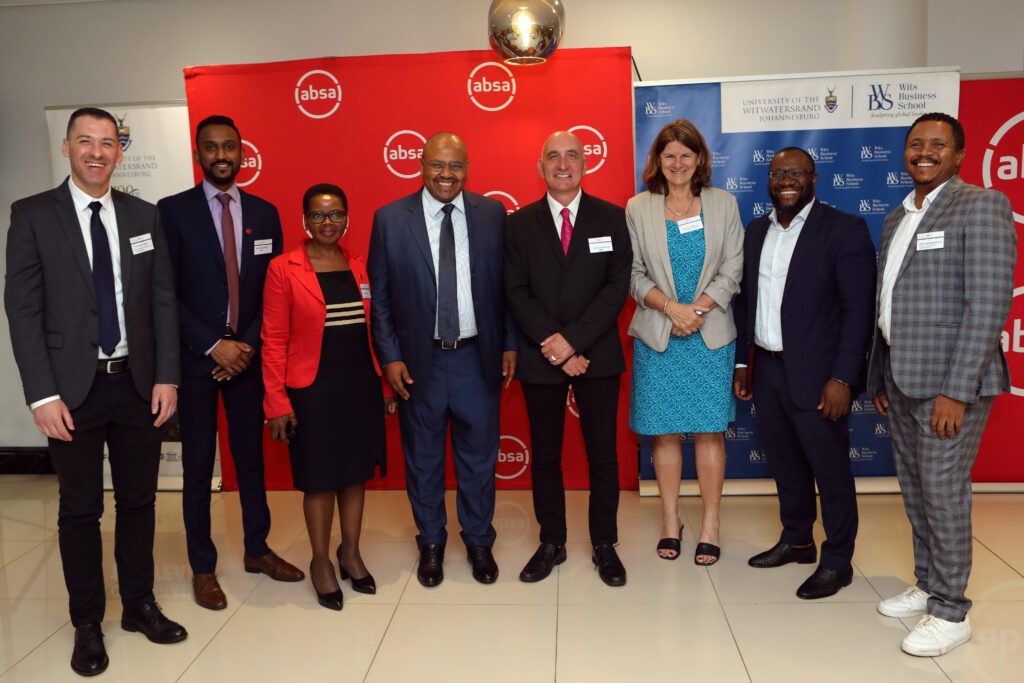A growing number of Absa’s workforce comprises of boomerang employees
Absa is proud to announce its continued recognition as a Top Employer for 2023 by the prestigious Top Employer Institute for the third consecutive year, across five markets – including South Africa, Zambia, Ghana, Botswana and Kenya. This certification reaffirms Absa’s commitment to maintaining exemplary people practice and initiatives that consistently meet and exceed rigorous global benchmarks.
The Top Employer Institute has acknowledged Absa’s outstanding performance in digital HR, learning, career development, ethics and integrity, placing the Group above industry standards. This recognition highlights Absa’s dedication to providing a human centred work environment, nurturing talent at all organisational levels, and continually optimising the employee experiences.
Jeanett Modise, Absa Group Chief People Officer, says “We are incredibly proud to receive this certification once again. This achievement underscores our unwavering commitment to fostering a workplace where excellence thrives, and our people practices set the standard for the industry. This recognition is a testament to the dedication of our entire team and reaffirms Absa’s position as a leading employer of choice in the financial services sector.”
In the journey towards building an empowering organisation, Absa launched our landmark broad-based black economic empowerment (B-BBEE) and staff scheme last year. The B-BBEE transaction includes a Colleague Share Scheme which will provide colleagues in South Africa with an equity ownership interest in Absa Group. Colleagues in participating ARO (Absa Regional Operations) and other international operations entities will participate in a Colleague Phantom Share Scheme, which is the cash equivalent of that implemented in South Africa. In naming the scheme eKhaya, meaning “home” in isiZulu, Absa captured this opportunity that has been created for each colleague to own a portion of our Absa home.
“This strategic move to award our employees with shares, not only reinforces Absa’s dedication to being an active force for good but also underscores the organisation’s mission of “Empowering Africa’s Tomorrow, Together, One Story at a Time”, Modise added.
The Top Employer certification also attests to Absa’s adoption of a flexible and hybrid work model, demonstrating a keen appreciation of the evolving Human Capital landscape. Absa’s leaders are equipped and experienced in leading winning teams remotely, showcasing the bank’s adaptability in the changing work environment.
“Another noteworthy achievement for Absa is that a growing number of its workforce comprises boomerang employees, reflecting the organisation’s culture and affirming that Absa is a place where employees find inspiration and continuously return. Boomerang employees are workers returning to a former employer after a stint working elsewhere. This statistic is a testament to Absa’s status as a great workplace, inspiring others in the industry”, Modise shares.
In 2023, Absa was rated top among “the 25 best workplaces to grow your career” in an annual survey by LinkedIn, the world’s largest professional network with more than 900 million members. Forbes also recognised the bank as a top African organisation championing women at work (ranked 36th out of 400 companies internationally). Lastly, Absa was also recognised in the fourth edition of Forbes’s World’s Best Employers ranking in the same year.
Absa remains committed to excellence, fostering diversity and inclusion, and empowering its workforce to shape a brighter future for Africa.
.png)
.png)
.png)
.png)
.png)
.png)
.png)

.png)
.png)




















